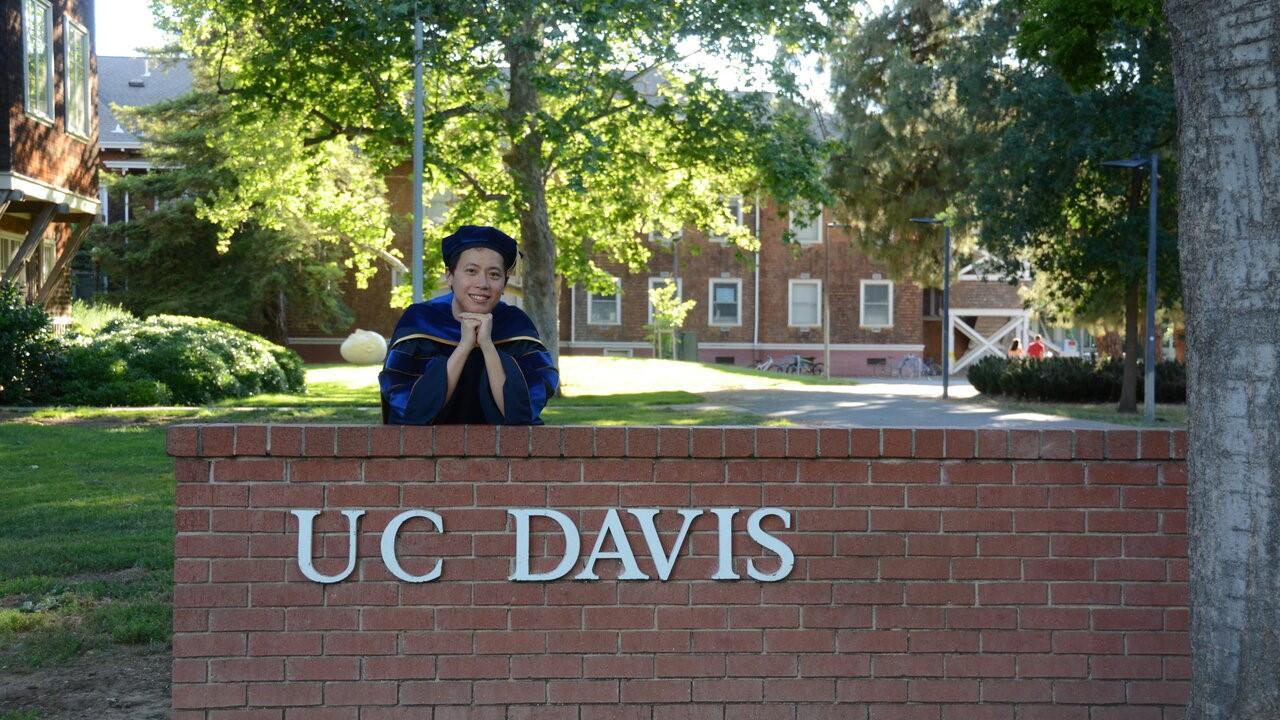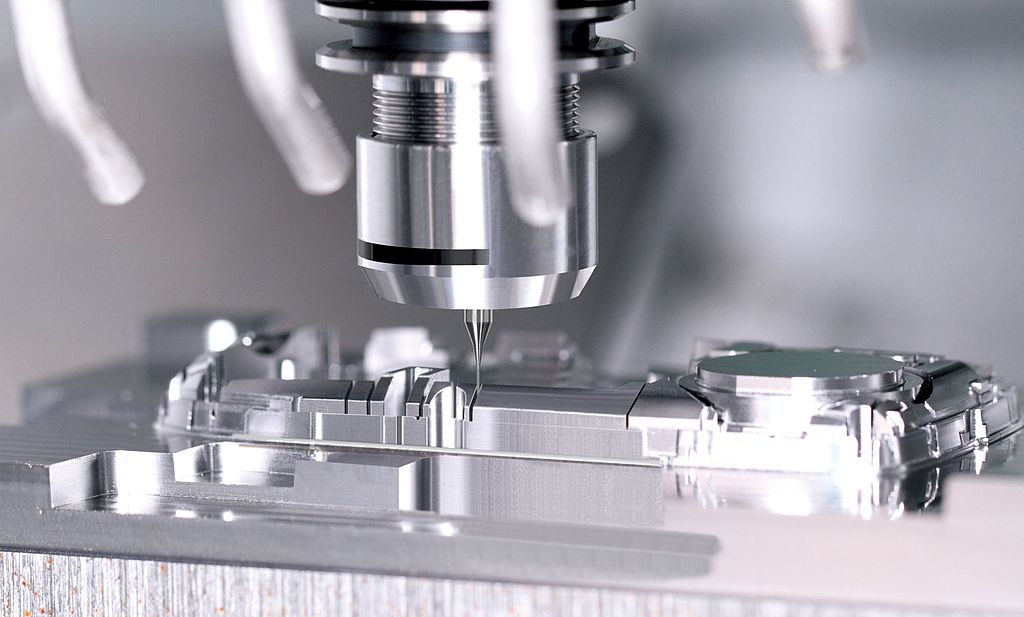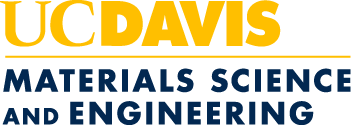
Student Spotlight: Weidi Zhu
Recent materials science and engineering (MSE) Ph.D. graduate Weidi Zhu had never worked with glasses before coming to UC Davis, but through research projects with Blacutt-Underwood Professor Sabyasachi Sen, he developed an interest in the material that turned into a career with Apple. As the world becomes “smart,” Zhu hopes to use what he learned at UC Davis to contribute to the science behind the glassy materials that will become increasingly important to the world.
Zhu was drawn to glasses because their random atomic structure makes them behave so mysteriously. While this makes them harder to understand than crystalline materials, he thinks it makes them much more unique and interesting.
“There is a lot of unexplored territory in the glassy world,” said Zhu. “Everything’s still a mystery.”
Zhu’s research at UC Davis focused on chalcogenide glasses. Unlike the most common oxide glasses—which are transparent in visible light, chalcogenide glasses are transparent mostly in the infrared wavelength. This makes them ideal for infrared optical components, sensors and night vision devices. To use them, however, researchers first need to understand their properties so they can properly process them.
“We need to understand their behavior and how it’s related to chemical composition and atomic structure so in industry, we can better control the parameters if we want to apply new processing techniques,” he explained.
One of Zhu’s projects focused on the non-Newtonian behavior of these materials during injection molding, a process commonly used for polymers where supercooled liquid material is pushed through a tiny opening into a mold.
“Injection molding is a very fast and easy method, but you can’t do it with oxide glasses because their processing temperatures are way too high,” he said. “If we can use these polymer processing techniques on chalcogenide glasses, which have similar processing temperatures, we can mass-produce optical components of a certain shape.”

This process usually creates a high shear rate, which can significantly decrease the viscosity and make the liquid flow much faster than if it were dripping. This change of viscosity at high shear rates is known as non-Newtonian behavior. Understanding this behavior and how it originates in the glasses’ atomic structure is key to optimizing their processing.
His other project involved studying relaxation behavior in chalcogenide glasses. If you apply a strain to a piece of glass, the internal structure will rearrange into a new steady state in response to the deformation. The higher the temperature, the faster the structure rearranges, which means it has a faster relaxation. Ultimately, the relaxation behavior determines the viscosity, which explains why glass softens upon heating.
“Viscosity is one of the key material properties of a glass, and to understand the viscosity, we need to understand its relaxation behavior,” he said.
Zhu joined Professor Sen’s lab after taking his “Transport Properties in Materials Processes” (EMS 264) class in his first quarter at UC Davis. Sen, a world-renowned expert on glass, helped Zhu quickly become an integral part of the lab.
“He [Sen] is a great PI who taught me how to do scientific research, how to be an effective and independent researcher when dealing with these scientific problems,” he said. “I think that has had a lot of impact on me.”
It was also Sen who gave him a new hobby after he encouraged the lab to take glass blowing classes at the UC Davis Craft Center to apply their knowledge firsthand. Zhu also loves skiing and playing billiards, as he was part of UC Davis’ club team while in school.
After finishing his Ph.D. this spring, Zhu began a job as a materials engineer at Apple, where he’ll be using his expertise in glasses to make the company’s device screens better and more durable. He’s thrilled to have found a job where he can take what he learned at UC Davis to make a significant impact on the world.
“As a hardware engineer, I hope to be working on some really exciting devices in the future, like the iPhone,” he said. “If I can help deliver a better product, I will be very happy.”
